by Christopher Perrin, PhD | Oct 7, 2014 | Articles
In the classical tradition, the study of the liberal arts enabled one to most fully realize one’s humanity—to become the best version of oneself. Put another way, the arts helped a man to live well, to craft a life worth living. Living such a “good life” was regularly contrasted with merely earning a living. The liberal arts, therefore enabled free men (those with the time and means) to remain free and to acquire capacities and virtues that blessed the man and those he served. There was both an internal and external aspect to a liberal arts education: the study of the arts were an end in themselves (personally humanizing and enriching) but also capacitating and equipping one to serve with excellence and wisdom.
John Henry Newman describes the capacities and virtues imparted to one by a classical, liberal arts education. He summarizes these capacities and virtues as the “perfection of the intellect:”
That perfection of the intellect which is the result of education, and its beau ideal, to be imparted in their respective measures, is the clear, calm, accurate vision and comprehension of all things, as far as the fine mind can embrace them, each in its place, and with its own characteristics upon it. It is almost prophetic from its knowledge of history; it is almost heart-searching from its knowledge of human nature; it has almost supernatural charity from its freedom from littleness and prejudice; it has almost the repose of faith, because nothing can startle it; it has almost the beauty and harmony of heavenly contemplation, so intimate is it with the eternal order of things and the music of the spheres.
Newman wrote this describing how he would create an ideal university (from his book The Idea of a University). In another place Newman summarizes what he calls a liberal education: “A habit of mind is formed which lasts through life, of which the attributes are, freedom, equitableness, calmness, moderation and wisdom.”
These are all attributes which are desirable for their own sake—but who can deny their practical value for anyone possessing them? Newman makes this very point, while stressing that “liberal knowledge” alone “stands on its own pretension, which is independent of sequel, expects no complement, refuses to be informed by any end, or absorbed into any art, in order duly to present itself to our contemplation.”
Thus we encounter a paradox of liberal learning: by not focusing on the practical, we become quite useful to others. This warrants some reflection. Of course there are many important “practical arts” (servile arts, manual arts, mechanical arts were older designations) worthy of study and mastery. Right now, there is quite an emphasis on the utility of students learning coding, for example.
The liberal arts, however, make a man practical by making him a master of language and mathematics and by enriching his mind with a storehouse of stories, poetry, history, geometry and physics—the best that has been thought and said. The trivium arts of grammar, logic and rhetoric enable men to make things out of words: poems, speeches, letters, essays and arguments. Doing these things really well—is good for what? Well Newman would say these things expect no compliment and refused to be informed by any end. They are a good unto themselves, “free” from any obligation to a particular use. And yet… and yet great speeches, poems, essays and arguments make anyone in any profession interesting, compelling and effective. A man with a perfected intellect—with calm, accurate vision, prophetic insight and supernatural charity—who would not want such a person as pastor, politician or plumber?
by Christopher Perrin, PhD | Sep 9, 2014 | Articles, Schools & Other Organizations

I cut my teeth on classical education as a headmaster of a Protestant classical school for ten years here in central Pennsylvania. Having studied history and classics in college, I knew at least the rough outline of the liberal arts tradition—at least enough to know that the Greeks and Romans studied a good bit of grammar, logic and rhetoric. I read Plato’s Republic in which he describes his ideal education for the ideal guardian for his ideal society.
It is indisputable: classical education existed during the classical periods—before the coming of Christ. Yes, there is a lot of talk about Classical Christian education, and for two good reasons: 1) Historically, the Christian church assumed the mantle of classical education, modified it, calibrated it to serve the Christian gospel and then greatly extended it. Thus a great deal of what we know as “classical education” has been “Christian” as well. 2) The recent renewal (over the past 25 years or so) of classical education has been initiated and led by Christians, particularly Protestants.
Number 1) remains a historical fact, though there are numerous examples of classical, secular schools and institutions that have carried on successfully, especially since the Enlightenment. Many schools that started as classical and Christian schools, are now secular even if retaining some classical elements. Most of the Ivy League colleges for example (Harvard, Princeton, Yale) started as classical and Christian institutions, and are now certainly not Christian, and a mix of classical and progressive elements.
Number 2), the recent renewal of classical education, is changing and extending. While there are at least 240 Protestant classical schools (the number of schools that are part of the Association of Classical Christian Schools) in the U.S. that have started since about 1990, there are many schools that have started outside of Protestantism and outside of the Christian church generally. A number of Catholic schools have returned to the classical approach and new ones are starting. The Institute for Catholic Liberal Education has started to support this effort. Several Orthodox schools have begun as classical schools too. Homeschooling continues its rapid growth in America and the classical approach to homeschooling is one very popular approach that is represented by Protestants, Orthodox and Catholics. Classical Conversations advocates for classical homeschooling and in my estimation attracts mainly Protestants, but also has Orthodox and Catholic participants. Aquinas Learning supports classical homeschool education for Catholics as does Laura Berquist’s Mother of Divine Grace School.
Those outside the Christian church are also rediscovering classical education, and finding it part of their heritage too, even if they sift out the religious elements almost always intertwined with classical education (see number 1). There are approximately 100 classical charter schools that have started around the U.S. in the last ten years—and more are on the way. The Great Hearts Academies association of Arizona has started 19 classical charter schools, with plans under way to start more in other states. Secular classical homeschooling is also on the rise—I note the rapid growth of Hip Homeschool Moms (not officially classical, but with many classical homeschoolers) and Sandbox to Socrates as examples. The Well-Trained Mind Forum contains thousands of classical homeschooling parents and a separate group for secular parents.
I find this very encouraging, and I say this as a citizen and a Christian. Why? As a citizen, I support better education generally. I would rather see a classical public school (likely a charter school) in my neighborhood than a troubled, progressive public school. A secular classical education is superior to what we have today, and a secular, truly classical education, will be by nature friendly to religious tradition. How is that? The ideals of a secular classical education hold forth the reality of truth, goodness and beauty and the life-long pursuit of these transcendentals. Virtue is regarded as real, paramount and attainable. The Great Hearts schools describe this as philosophical realism, rooted in teaching extending back to Plato.
However, I am a Christian and deeply love the Christian classical tradition that assumed, transformed and extended the liberal arts studied by the Greeks and Romans. This is part of a large story not worthy of this short essay, but we can note that large numbers of pagan Greeks and Romans became Christians, were the first Christians, and they adopted and transformed the classical curriculum, putting theology at the head as the queen or governess. Up until about 1900 education was “classical” and largely Christian as well.
I have labored (imperfectly) to give my children a Christian classical education. To my colleagues and friends outside the church, I say give your children a classical education. Study and seek after wisdom, eloquence and virtue, after truth, goodness and beauty. Like so many Greeks and Romans centuries ago you may find that the church (and her theology) the extension of your search, the fulfillment of all that you dream. If not, you will remain my esteemed colleagues laboring for the common-wealth of our children and nation.
Next blog article in this series: Why the Liberal Arts Are for Every Human
Then next after that: Do Classical Charter Schools Threaten Classical Christian Schools?
by Christopher Perrin, PhD | Aug 8, 2014 | Articles
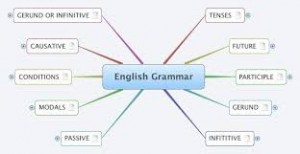
Many classical educators claim that when you learn the grammar of say, Latin, you are learning the grammar of all language. Isn’t this quite a stretch? How can we be so sure that the eight parts of speech and how they function in Latin will describe how they function in all languages? Do all languages have subjects, verbs and objects? I think it is a large claim, and yes, a stretch. I also believe it is true.
Most of us don’t give a lot of thought to the metaphysics of grammar, or just plain grammar for that matter. This has not always been the case. Language is what sets us apart from all other creatures, as even dolphins and monkeys (as smart as they are) have not published any grammars yet. Some may argue that monkeys do make use of subjects and verbs, with regular sounds that indicate “I hungry” and the like. I will concede that monkeys communicate. I will not agree that they know the subjunctive mood.
In the past, the ancients grammarians and philosophers discussed these matters. Some thought that grammar was universal and tied to the reality of the universal Logos (to Christians, meaning Christ himself). None other than Marshall McLuhan (the communication theorist who famously said “the medium is the message”) writes about this. There were those who were analogists, who saw universal grammar as analogy of the universal Logos:
The analogists argued for the view that there is a universal grammar, since language is the effect of reason, which is the analogy of the universal Logos. At the level of conjugations and declensions, this view tended to strengthen the notion of regularity. The anomolists, one might suppose were Epicureans who denied the doctrine of the Logos… They asserted that in speech there is no order. All is based on custom.
Then McLuhan quotes Socrates in the Cratylus. Socrates appears to be an analogist, who thinks that names (words) are related to the inherent nature of things: “I should say that this giving of names can be no such light matter as you fancy, or the work of light or chance persons; and Cratylus is right in saying that things have names by nature, and that not every man is an artificer of names; but he who only looks to the name which each thing by nature has, and is, will be able to express the ideal forms of things in letters and syllables.”
Of course the debate between the analogists and the anomalists continues. The evolutionary atheist will likely (I think must) see grammar as an anomaly, as a convention that has evolved but has no universal quality tied to some universal reason. Whatever reason exists to such a person, can’t exist outside our brains, but must have evolved within them. For the atheist, as Chesterton says, “it is an act of faith to assert that our thoughts have any relation to reality at all.” The theists among us, who believe in a divine and rational reality outside our brains, are likely to admit that grammar could very well be universal and even eternal. To the theist (to the Christian certainly) language and grammar may not be mere convention or custom, but may be reflections of the divine order and even the image of God himself in humans beings. What do you think? What ever you think, you will think with words.
Well, who would have thought that the study of grammar could lead us to metaphysics and theology? It does. Grammar is magical, because language is magic. We speak, other hear and understand. And somehow, when I study grammar in Latin, it is my English that improves.
by Christopher Perrin, PhD | Jul 10, 2014 | Articles
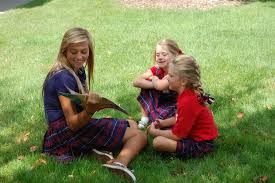
Have you come across this phrase before? It has intrigued me for years. I like the alliterative quality, I like the hints of other words (doctrine from docendo; discipline from discimus). By teaching we learn—really? Surely, we have to learn first then, teach—we get degrees in college so we can teach—right?
Here we encounter an educational paradox. The way to become a great teacher is to remain a student; the way to become a great student is to teach. This Latin motto has been around for centuries and is the motto of colleges and training centers in many places—just Google it (Central Washington College, University of Defense—Czech Republic). If this is a bit of perennial wisdom, why is it so rarely implemented in our schools? Why don’t the upper school students spend some time teaching the younger students? Why don’t students teach occasional sections in their own classes? Several good things can result: teachers get a small break (but then they should observe and assess the teaching of their students); other students will enjoy the change; the presenting student will be on her toes (for it will be a performance of sorts); the presenting student will apparently learn more by having to teach. This seems to me a win-win-win.
Of course, some schools and homeschools are engaged in docendo discimus. Schools that cycle through history, repeating the teaching of historical periods in later grades, can have older students come down to the younger grades to teach history. If the ninth graders and fourth graders are studying medieval history—you can imagine the opportunity. Certainly older students can teach younger students Latin, grammar and mathematics, under the supervision of the class teacher. Students can check homework, meet one-on-one to coach younger students, and occasionally present before an entire class. Older students can even help reinforce reading skills by reviewing letter, phonemes, and words; many schools have “reading buddies”—older students who pair off with younger students and read aloud to younger readers weekly.
This pedagogy harkens back to the traditional one-room schoolhouse on the prairie. With a diverse group of students of varying ages all in one room, the teachers naturally employed older students as junior teachers who would teach younger students, while the teacher would work with another group. As the younger students matured and aged, they naturally would begin to teach those students younger than they. By teaching, they learned.
Now what is a homeschool but a kind of one-room schoolhouse? Yet some homeschool parents (I think because of their own educations) find it hard to imagine that their older students should teach much or at all. Naturally, as parents and teachers, we should be focused on the quality of teaching to any student—and perhaps having a student teach a student diminishes quality. If so, which student loses quality? Certainly not the student teaching—not if the maxim holds true—for if he teaches he learns. If the younger student receiving the teaching of an older one is not taught so well, then we should have him teach another still younger, as soon as possible. Even the younger ones aspire to this, do they not? How often do the seven-year olds instruct the five-year olds at play or during recess? How often do young girls line up their dolls and teach?
by Christopher Perrin, PhD | Apr 18, 2014 | Articles
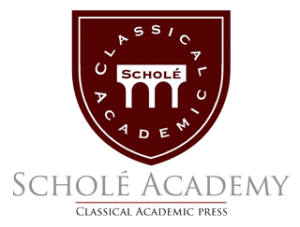
Many of you have followed my writing and teaching on the concept of scholé in education. Scholé is a Greek word that means leisure, conversation, reflection–restful learning. Yes, scholé is the root word for our word for school, though our schools are generally anything but restful. After a great deal of planning and gathering educators, CAP has launched a new online academy that we have named (no surprise) Scholé Academy. Scholé Academy seeks to implement the principles of restful learning in an online environment.
We are pleased to report that Scholé Academy has some 20 teachers in place ready to teach some 60 courses this summer and fall. The line-up of classical educators who will be serving with Scholé Academy is impressive. All of the teachers have experience teaching in classical schools (our veteran Latin teacher has taught Latin for 47 years!) and several of them are authors of classical curricula (Gaylan DuBose–Latin Alive!; Jolie Hodge–Art of Argument and Discovery of Deduction; Shelly Johnson–The Argument Builder). Students can study with those who …. wrote the book.
So yes, Scholé Academy will seek to implement the classical tradition of restful or leisurely learning online. This may seem oxymoronic, but we believe it can be done. To read a short description of the “scholé approach” see this link:

The scholé approach: restful learning
Readers can also review all of the Scholé Academy authors and their bios by clicking the image below:
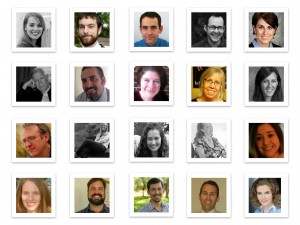
My best to you on this Good Friday.
by Christopher Perrin, PhD | Mar 11, 2014 | Articles
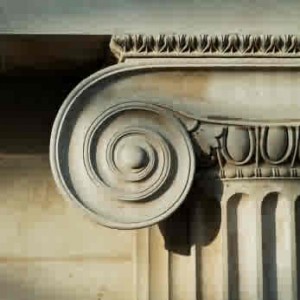
From time to time I am asked what colleges I think make for a good fit for classically-educated students. With my second child in college and my first already graduated, naturally I have thought about this a bit. In my work with the Society for Classical Learning, I have also been working with my colleagues to partner with colleges around the nation.
The truth is that classically-educated high school graduates are going to a wide variety of colleges, both Christian and secular. In my experience, these students are competitive and often gain entry into selective colleges, and often receive scholarships. The word is out among many colleges that classical students are generally great students, well-prepared for high-level college work. I know from talking to professors firsthand how this seems to have worked: about ten years ago various colleges began to notice that classically-educated students were excelling at college. K-12 schools (and homeschools) from which these students came where identified as small but rich sources of great students. The colleges then began to recruit directly at many of these schools. Happy students at college began to encourage their friends (still in high school) to apply. More classical students began to flow into some of these colleges (like Grove City College here in PA).
Some of these colleges began to create programs especially for classically-educated students (like Hillsdale College and Grove City College). Some colleges began to emphasize programs already established that appeal to classical students (like the Torrey Institute at Biola College, Great Texts Program at Baylor University and the Jerusalem & Athens Forum at Gordon College). Some colleges have started graduate programs designed to equip students to teach at classical schools like New Saint Andrews College and Houston Baptist University.
Then there are those colleges that have traditionally already had aim at classical students (some new some older): The University of Dallas (Catholic), St. Johns College (secular), Thomas Aquinas College (Catholic), Patrick Henry College (Christian), New Saint Andrews College (Christian). Traditionally academic Christian colleges like Wheaton College and Calvin College have also begun taking notice of classical students, and attracted them. Calvin philosophy professor James K. A. Smith (author of Desiring the Kingdom) has been influential to leaders in the classical Christian education renewal, and become an advocate for it. The Wheaton College graduate school dean (and professor of New Testament) Nicholas Perrin is also an advocate of the renewal and indeed helped found a classical school close to Wheaton (Covenant Classical School).
Other Christian colleges are also taking note of classical students. Messiah College and Eastern College have attracted classical students, and professors in both colleges have expressed interest in recruiting more. The same could be said for many other Christian colleges such as Covenant College, Geneva College, LeTourneau University, The Kings College and Belmont College, and several others.
Classical students are also going to secular colleges, most often the smaller liberal arts colleges, but also larger state universities and then often in honors programs. Yes, there are some classical students who have gone to Harvard, Princeton, Penn, Stanford, MIT and the like, but these schools are statistically extremely hard to get into, even by those qualified (a perfect SAT score doesn’t mean you will gain admission). Students are also going to established liberal arts colleges such as Middlebury College, Grinnell College, Furman University and Davidson College. Regionally it is not uncommon for classical students to gain admission to the larger state universities such as the University of Virginia, Penn State or the University of Michigan.
All in all, classical students are getting into very good colleges, and are sought-after by colleges that recognize the excellent education they have received.
So what do I recommend? I think that the college should fit the student and the student should fit the college. Some students are ready for the experience of a secular college, others are not. Some will thrive at a larger state university, but many classical students will want the smaller classes and discussion format more frequently offered at small liberal arts colleges, Christian or secular. Classical students going to a large university will likely enjoy honors programs or finding more dynamic interaction among students and professors in their major. Christian classical students will want to find fellowship in a Christian group. There is wisdom in the notion that students must seek out the education they want at any college and not expect it will just come to them. We should also note that factors such as proximity and cost are important factors when selecting a college.
Still, I have a list of favorites, based on my limited experience and knowledge. This list is therefore short and no doubt leaves out many excellent colleges. Feel free to post your own favorites and list the reasons–I may then revise my list based on your feedback! For a larger list of colleges that classical students are attending, see the list provided by the Association of Classical Christian Schools (ACCS) here: List of colleges ACCS students attend
Christian Colleges
- Grove City College: Very friendly to classical students, and actively recruiting them. GCC has developed a classical studies minor that deepens classical learning and prepares students to teach in classical schools. Disclaimer: my daughter Zoe graduated from GCC.
- Biola University: The Torrey Institute at Biola has been a great fit for many classical students and has sent many graduates into classical schools as teachers.
- New Saint Andrews College: A small, dynamic and classical college in Moscow, Idaho. Their oral Latin program is notable and unusual. One “major” for all students.
- Baylor University: The Great Texts Program has done the same thing for classical students as has the Torrey Institute at Biola.
- Patrick Henry College: A small college in Northern Virgina (very beautiful setting) that is classical in orientation, and offers remarkable internships in Washington, D.C.
- Gordon College: The Jerusalem & Athens Forum is excellent, so is the Gordon in Orvieto Program.
- Houston Baptist University: This college is rapidly growing to serve classical students and has been recruiting great professors to the campus (e.g. Louis Markos, John Mark Reynolds).
- Wheaton College: Traditionally known for great academics, well-suited for classical students.
- Calvin College: Very much like Wheaton, with a growing appreciation for classical students.
- Messiah College: A warm, communal atmosphere with dedicated professors who love teaching. The philosophy and English departments are particularly welcoming and strong.
- Eastern College: Another warm campus (blue jeans atmosphere). The honors program has attracted classical students.
- Covenant College: A strong academic college in the reformed tradition.
- University of Dallas: A robust Catholic college that with a strong humanities emphasis.
- Ave Maria College: Located in Florida, this is a relatively new Catholic college that is traditional, pious and classical.
Secular Colleges
- Hillsdale College: A conservative liberal arts college in Michigan, friendly to the Judeo-Christian tradition in the U.S. It also features a program for training classical educators.
- St. Johns College: The third oldest college in the country, this is a “great books” school with a common curriculum and small classes. There is a campus in Annapolis, MD and Santa Fe, NM.
- University of Virginia: Strong classical department; many classical students have gained admission to UVA.
- University of Texas: I believe UT hosts the larges classics department in the world. A fine choice for students wanting to pursue a classics major.
- Furman University: Many classical students enjoy this school and recommend it to others.













